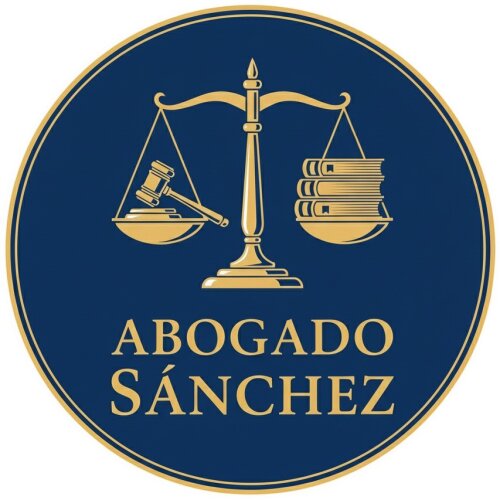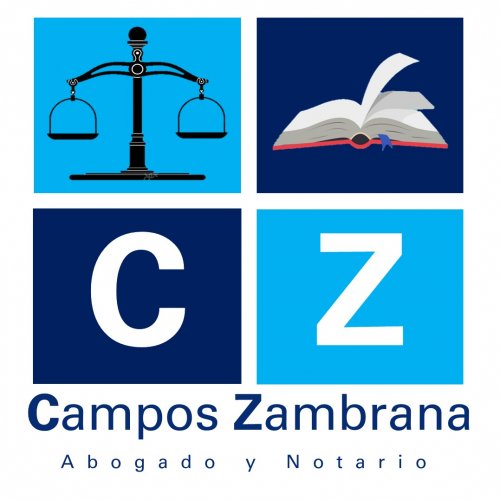Best Criminal Litigation Lawyers in Nicaragua
Share your needs with us, get contacted by law firms.
Free. Takes 2 min.
Or refine your search by selecting a city:
List of the best lawyers in Nicaragua
About Criminal Litigation Law in Nicaragua
Criminal litigation in Nicaragua involves the legal processes and proceedings related to crimes and offenses recognized under the Nicaraguan Penal Code. This branch of law establishes the mechanisms for prosecuting individuals accused of committing a crime, determining their guilt, and imposing appropriate penalties. The system is designed to ensure justice while protecting the rights of both victims and defendants. Nicaragua follows a mixed legal system influenced by civil law traditions, and the criminal process is adversarial, where the public prosecutor plays a central role in bringing charges and presenting evidence.
Why You May Need a Lawyer
Seeking legal assistance in criminal litigation is crucial for several reasons:
- Arrest or Detention: If you or someone you know is arrested or detained, a lawyer is essential to protect your rights and ensure fair treatment.
- Charges Filed: Facing criminal charges can be complex and intimidating; a lawyer can provide necessary guidance and representation.
- Investigation Concerns: Legal counsel is important if you are the subject of a criminal investigation or need to understand the implications of ongoing inquiries.
- Trial Representation: A lawyer can effectively advocate on your behalf during trial proceedings, from presenting evidence to cross-examining witnesses.
- Plea Bargaining: Legal experts help in negotiating plea deals and understanding the consequences of different legal options.
Local Laws Overview
Nicaragua’s criminal laws are detailed in the Penal Code (Código Penal), and procedures are guided by the Criminal Procedure Code (Código Procesal Penal). Some critical aspects include:
- Presumption of Innocence: Every individual is presumed innocent until proven guilty in a court of law.
- Right to Defense: Accused individuals have the right to legal defense and to be informed of the charges against them.
- Due Process: The legal process must be conducted fairly, with respect for all legal procedural rights.
- Bail and Detention: Regulations govern pre-trial detention, with specific conditions under which bail may be granted.
- Severity of Punishments: Penalties vary based on crime severity, ranging from fines to long-term imprisonment.
- Juvenile Justice: Special considerations are made in the proceedings involving minors.
Frequently Asked Questions
What should I do if I am arrested?
Remain calm, exercise your right to remain silent, and request legal counsel immediately. It's critical not to provide statements without a lawyer present.
How long can I be held without charges?
Under Nicaraguan law, you must be presented before a judge within 48 hours of detention, where the legality of your detention will be assessed.
What is the role of a public prosecutor?
The public prosecutor is responsible for investigating crimes, filing charges, and representing the government's interests in criminal cases.
Can I represent myself in a criminal trial?
While legally possible, it is not advisable due to the complexity of criminal proceedings and the importance of effective legal strategy and advocacy.
How does plea bargaining work in Nicaragua?
Plea bargaining allows defendants to plead guilty to lesser charges for reduced sentences, typically requiring negotiation guided by legal counsel.
What rights do victims have in criminal proceedings?
Victims have the right to participate in proceedings, be informed of case progress, and seek restitution or compensation.
What happens after an acquittal?
If acquitted, the accused are released, and any charges are dismissed. The state cannot seek further prosecution for the same offense.
How can evidence be challenged in court?
Evidence can be contested on grounds such as relevance, credibility, or legality of acquisition, often requiring skilled legal arguments.
What considerations are there in juvenile cases?
Juvenile cases focus on rehabilitation, and processes differ significantly from adult cases, emphasizing the age and maturity of the minor.
Can I appeal a conviction?
Yes, convicted individuals have the right to appeal decisions to higher courts, which can review and possibly overturn lower court verdicts.
Additional Resources
Various resources are available for individuals seeking assistance in criminal litigation in Nicaragua:
- Public Defender’s Office: Offers legal representation for those unable to afford private lawyers.
- Ministry of Justice: Provides information and resources related to legal rights and procedures.
- Legal Aid Clinics: Offer free or low-cost legal advice and services.
- Non-Governmental Organizations (NGOs): Focus on legal reforms, human rights, and providing support to affected individuals.
Next Steps
If you find yourself in need of legal assistance for a criminal matter in Nicaragua, consider the following steps:
- Contact a Lawyer: Seek legal counsel from a qualified criminal defense attorney to explore your options and understand your rights.
- Gather Documents: Collect all relevant documents, evidence, and information related to your case to present to your lawyer.
- Understand Your Situation: Work with your lawyer to assess the charges, potential defenses, and any plea options available.
- Stay Informed: Familiarize yourself with the Nicaraguan legal system and your rights to ensure informed decision-making.
- Follow Legal Advice: Coordinate with your lawyer to develop a strategic approach to your defense and adhere to any advice given.
Lawzana helps you find the best lawyers and law firms in Nicaragua through a curated and pre-screened list of qualified legal professionals. Our platform offers rankings and detailed profiles of attorneys and law firms, allowing you to compare based on practice areas, including Criminal Litigation, experience, and client feedback.
Each profile includes a description of the firm's areas of practice, client reviews, team members and partners, year of establishment, spoken languages, office locations, contact information, social media presence, and any published articles or resources. Most firms on our platform speak English and are experienced in both local and international legal matters.
Get a quote from top-rated law firms in Nicaragua — quickly, securely, and without unnecessary hassle.
Disclaimer:
The information provided on this page is for general informational purposes only and does not constitute legal advice. While we strive to ensure the accuracy and relevance of the content, legal information may change over time, and interpretations of the law can vary. You should always consult with a qualified legal professional for advice specific to your situation.
We disclaim all liability for actions taken or not taken based on the content of this page. If you believe any information is incorrect or outdated, please contact us, and we will review and update it where appropriate.
Browse criminal litigation law firms by city in Nicaragua
Refine your search by selecting a city.










